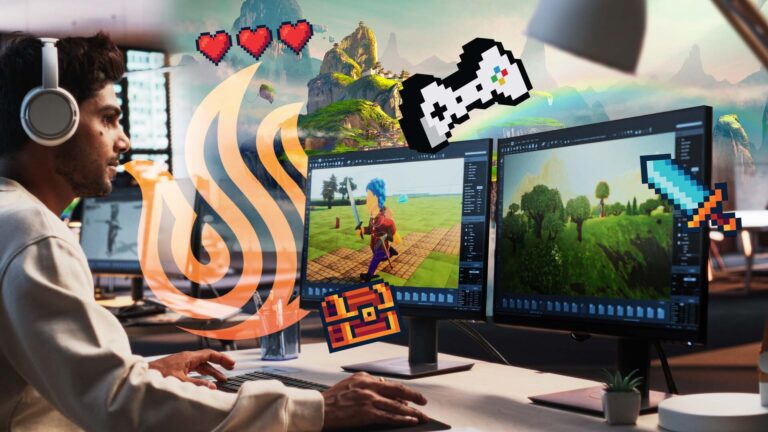In the vast and immersive world of video games, memorable main characters and non-player characters (NPCs) are the lifeblood that breathes soul into virtual realms. From iconic heroes to intriguing villains and quirky companions, these characters drive player engagement and emotional attachment to the game. Crafting unforgettable characters and NPCs requires creativity, psychology, a sense of humor, and attention to detail. Here’s a brief guide to creating memorable game characters that leave a lasting impression on players and enhance the overall gaming experience.
Creating Memorable Game Characters
Before diving into character creation, it’s important to understand the role and purpose of each character in the game. Whether they are the hero, enemy, sidekick, or a random NPC, each character can contribute to the game in unique ways. Establish clear goals for each character, including their motivations, backstories, and their impact on the game world.
Give Characters Distinct Personalities
One of the keys to creating memorable game characters is to provide them with distinct and relatable personalities. This includes their quirks, flaws, strengths, fears, and desires. By giving characters depth and dimension, players can connect with them on a more emotional level. Write comprehensive character profiles to help maintain consistency in their behavior and speech, making sure they remain true to their personalities throughout the game.
Dish Out Some Dynamic Dialogue
Dialogue is a powerful tool to breathe life into characters, revealing their thoughts, emotions, and unique traits. Tailor dialogue to suit each character’s personality and consider branching narratives that allow players to influence their interactions.
Develop Engaging Backstories
Backstories provide characters with a rich history that shapes their current actions and motivations. Whether a character’s past is revealed through in-game dialogue, cutscenes, or collectible lore, that character becomes more memorable and real. Avoid clichés and craft compelling and original backstories that will resonate with players.
Design Unique Visuals
Visual design also plays a significant role in character memorability. A character’s appearance, from their clothing and accessories to their facial features, should be unique and reflect their personality traits and roles in the game. Strive for a balance between realism and stylization, allowing the character to fit seamlessly into the game’s world.
Use Voice Acting and Sound Effects
Using talented voice actors can elevate characters to new heights. A well-delivered voice performance adds depth, emotion, and authenticity, breathing life into the character. You can also enhance the character’s presence by using distinct sound effects, creating a lasting auditory impression.
Let Your Characters Evolve
Character development arcs allow characters to evolve and grow throughout the game. The lead character’s transformation from a novice to a hero or a villain’s gradual descent into darkness helps the players feel more invested in their journey.
Build Real Relationships
Establish realistic relationships between characters such as friendships, rivalries, and romantic interests to make for a more compelling and memorable experience. Players should be encouraged to explore these relationships, making choices that impact the outcomes.
Integrate Characters into Gameplay
An unforgettable character should not be limited to cutscenes or dialogue alone. Integrating them into gameplay can enhance their significance. For example, a weird little companion might provide helpful tips or unique abilities, while a scheming villain may set up the next battle or an advanced level. Use gameplay to reinforce the character’s role in the story.
Gather Feedback
Creating memorable game characters requires a lot of back and forth. Seek feedback from testers and players to continuously refine their traits, dialogue, and interactions. Constructive criticism and player insights can identify areas for improvement and lead to characters that resonate more deeply with the gaming community.
In video game design, memorable characters and NPCs help improve player experiences and forge lasting memories. By understanding the role of each character, crafting distinct personalities, and weaving engaging backstories, designers can create characters that players will never forget.
Prepare for Your Dream Career at USV
Becoming a video game designer requires a combination of passion, creativity, technical skills, and industry knowledge. If you dream of becoming a video game designer and creating amazing and memorable characters, University of Silicon Valley can help you turn that dream into reality.
We can prepare you for success in the creative-technology industries by providing a hands-on, project based real-world education inspired by the entrepreneurial spirit of our Silicon Valley location. We also offer our courses in Game Design and Development online.
Check out our Bachelor of Arts in Game Design program, and apply now, request more info, or come visit our campus. Get ready to take your gaming skills to the next level.


